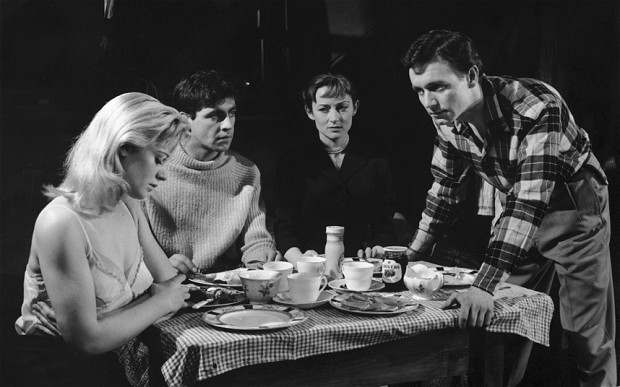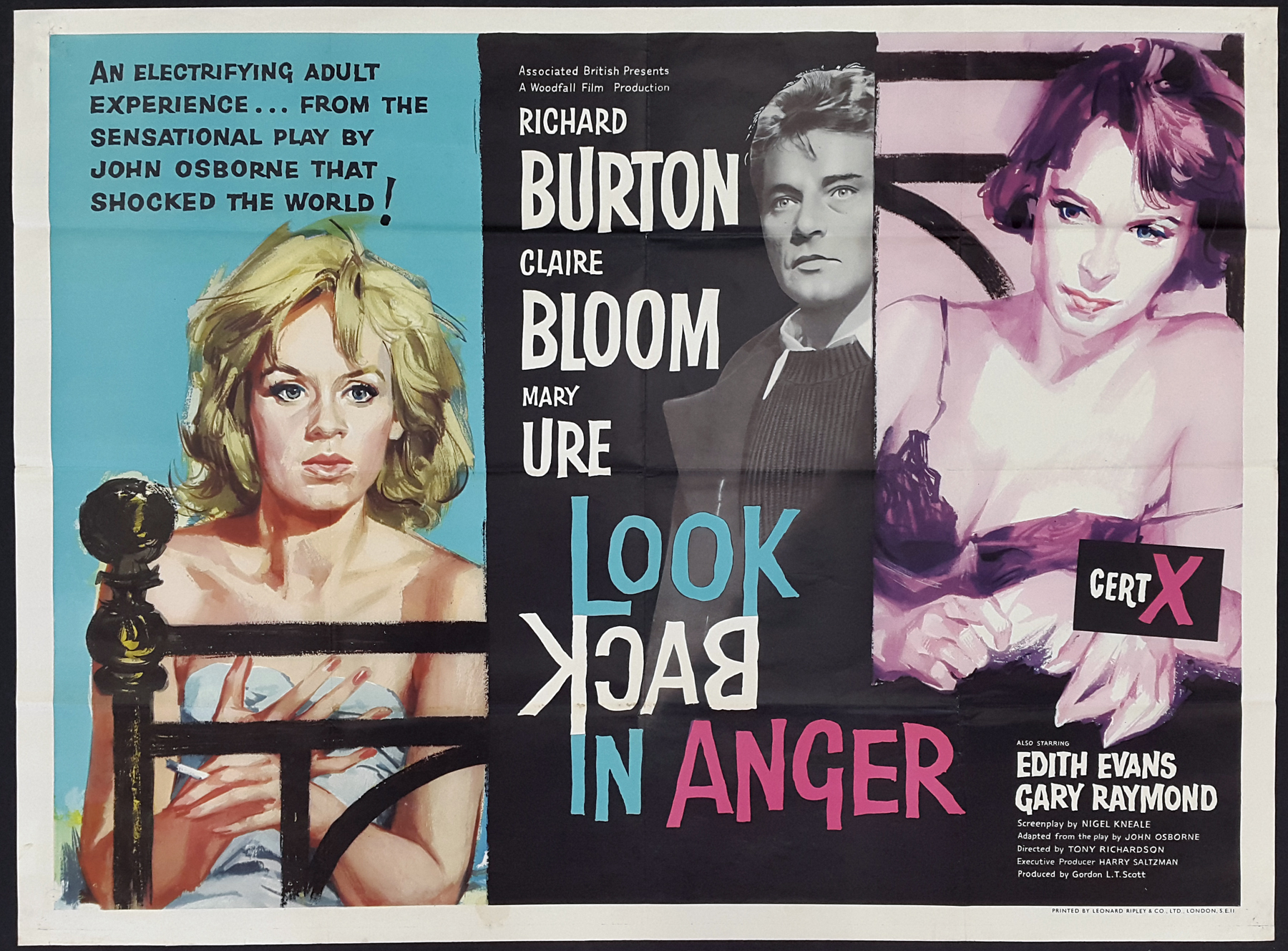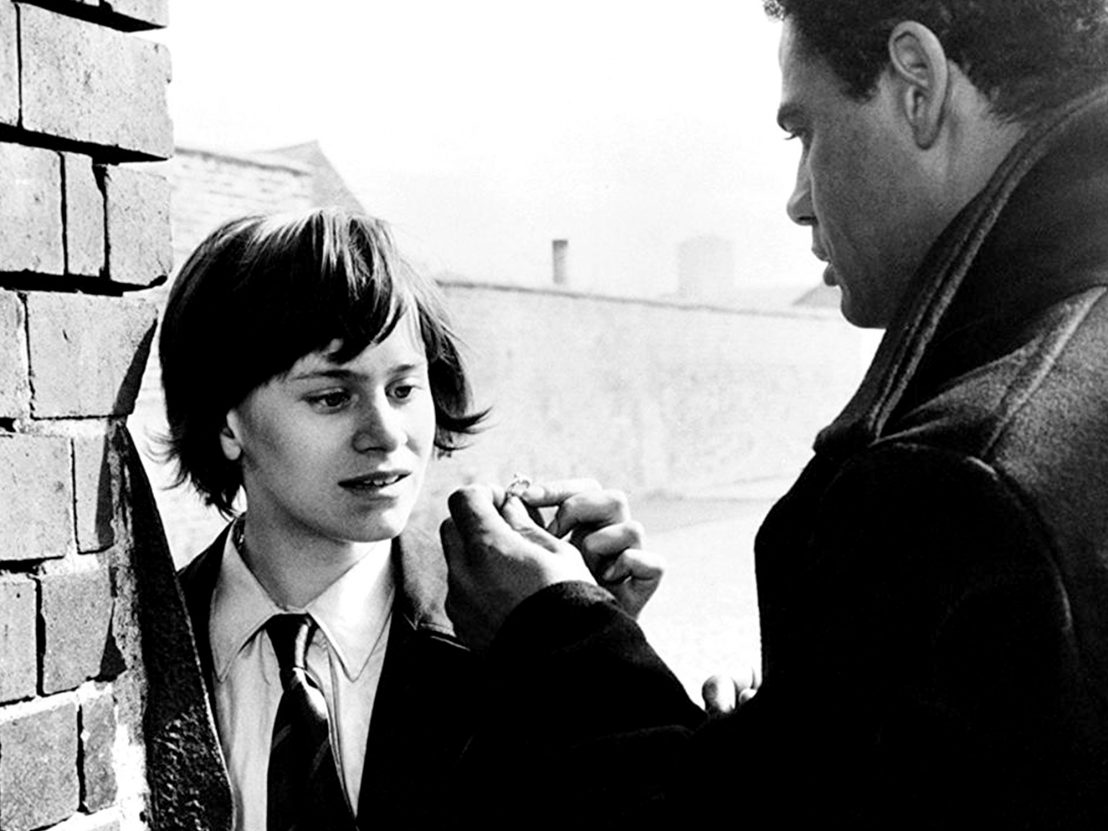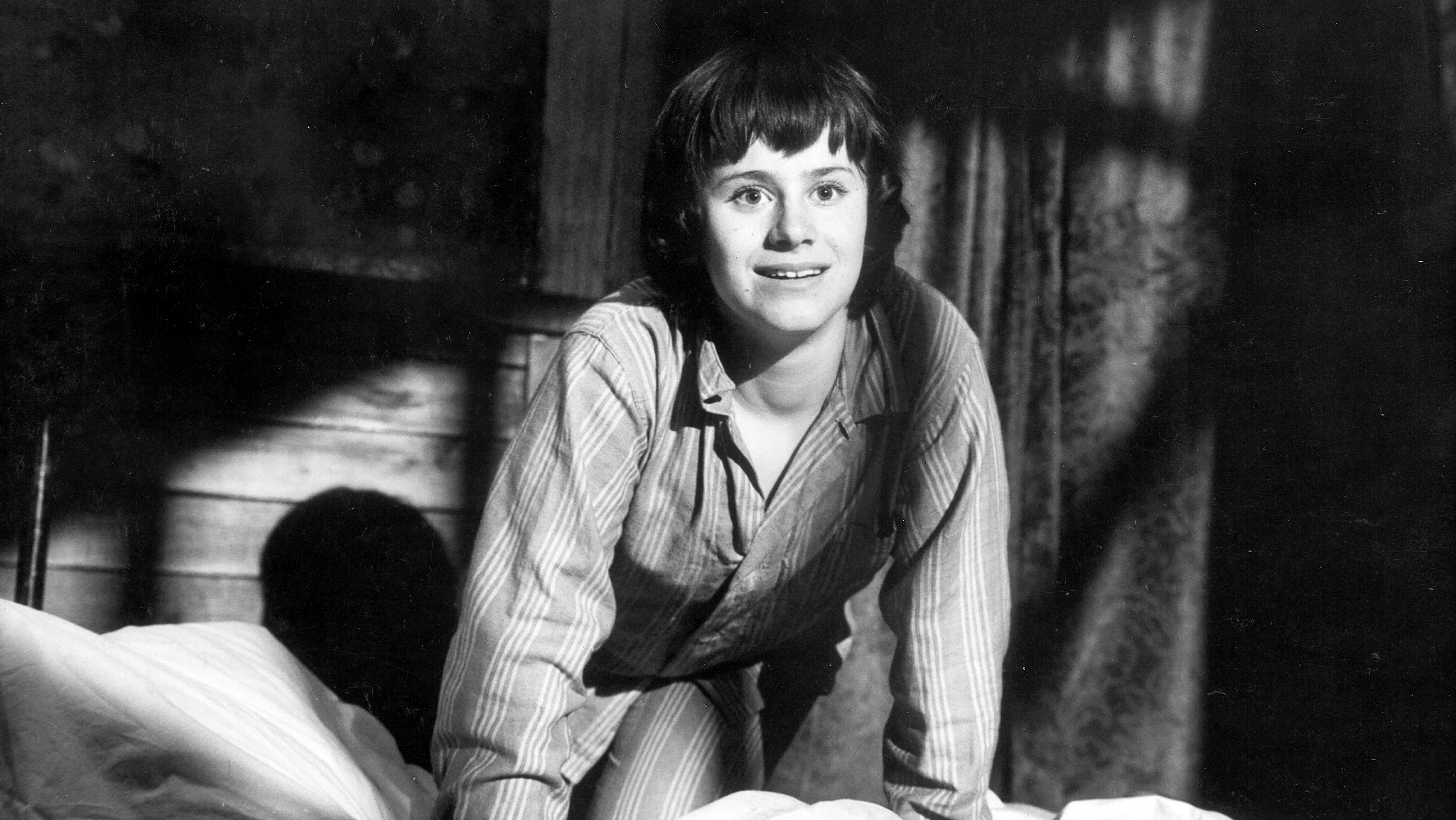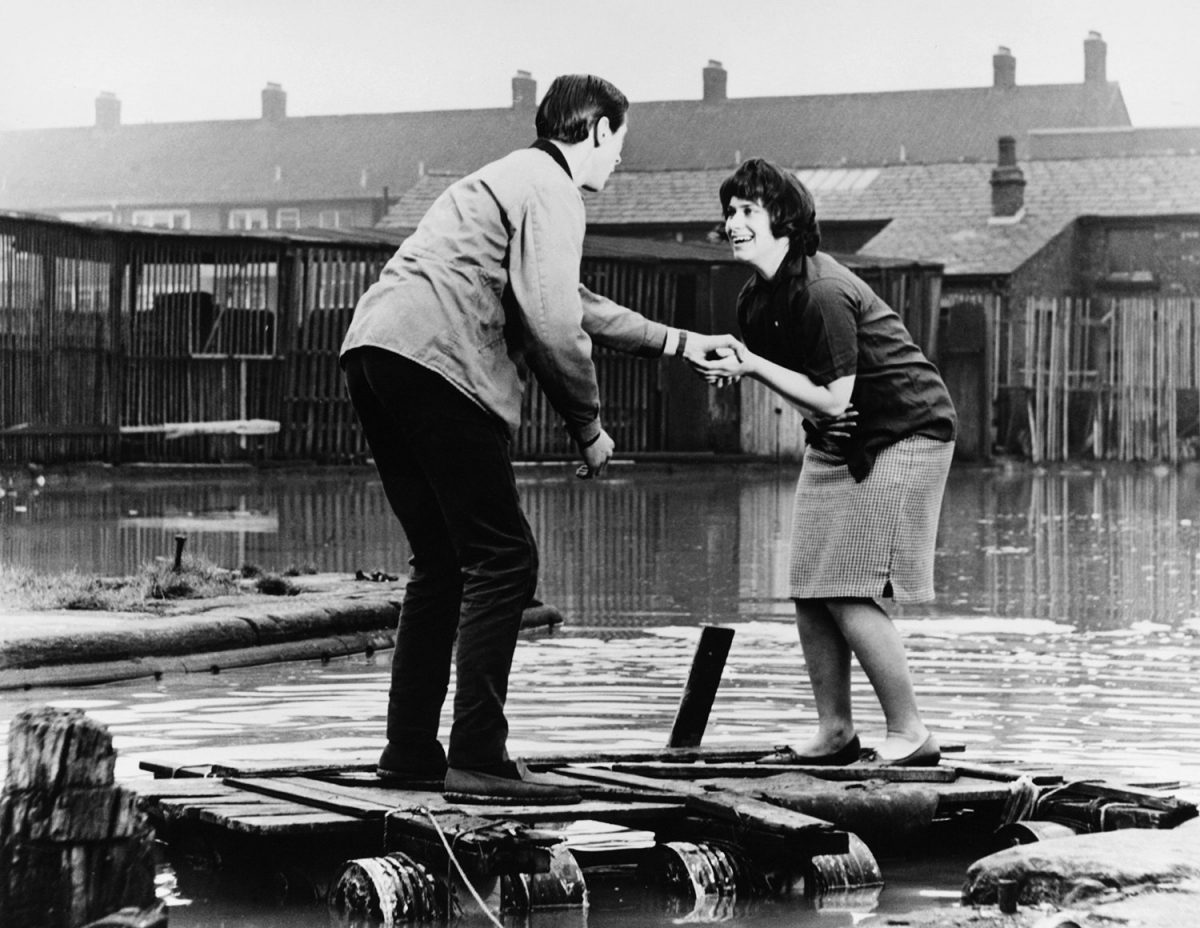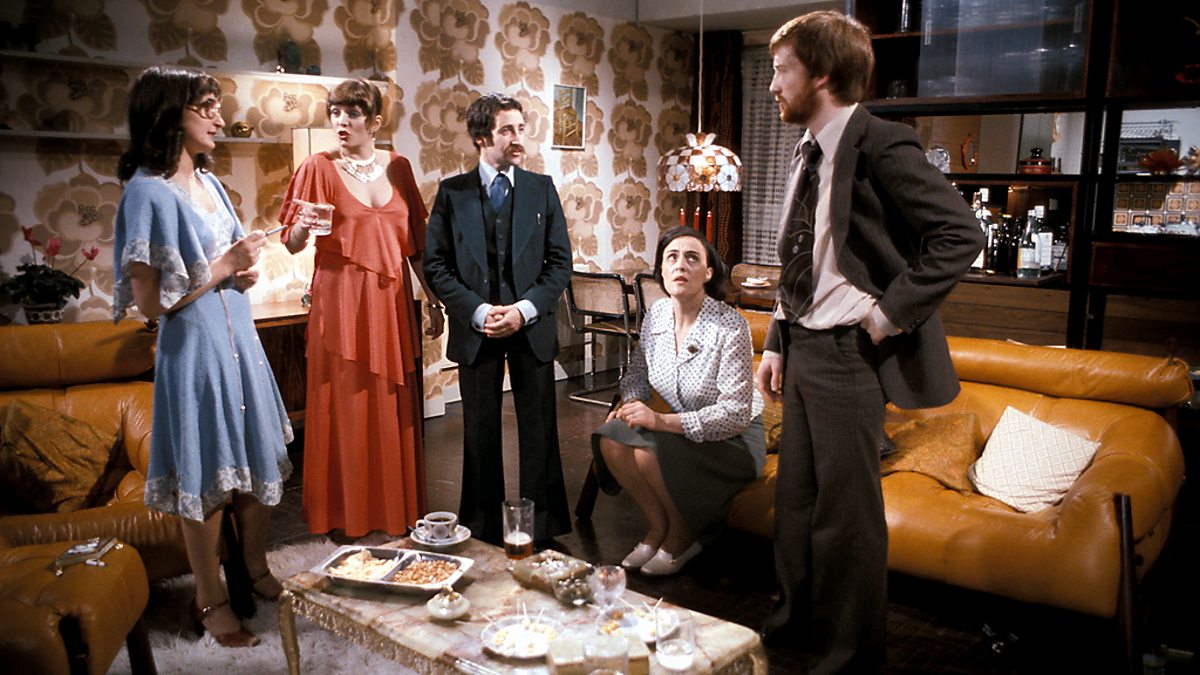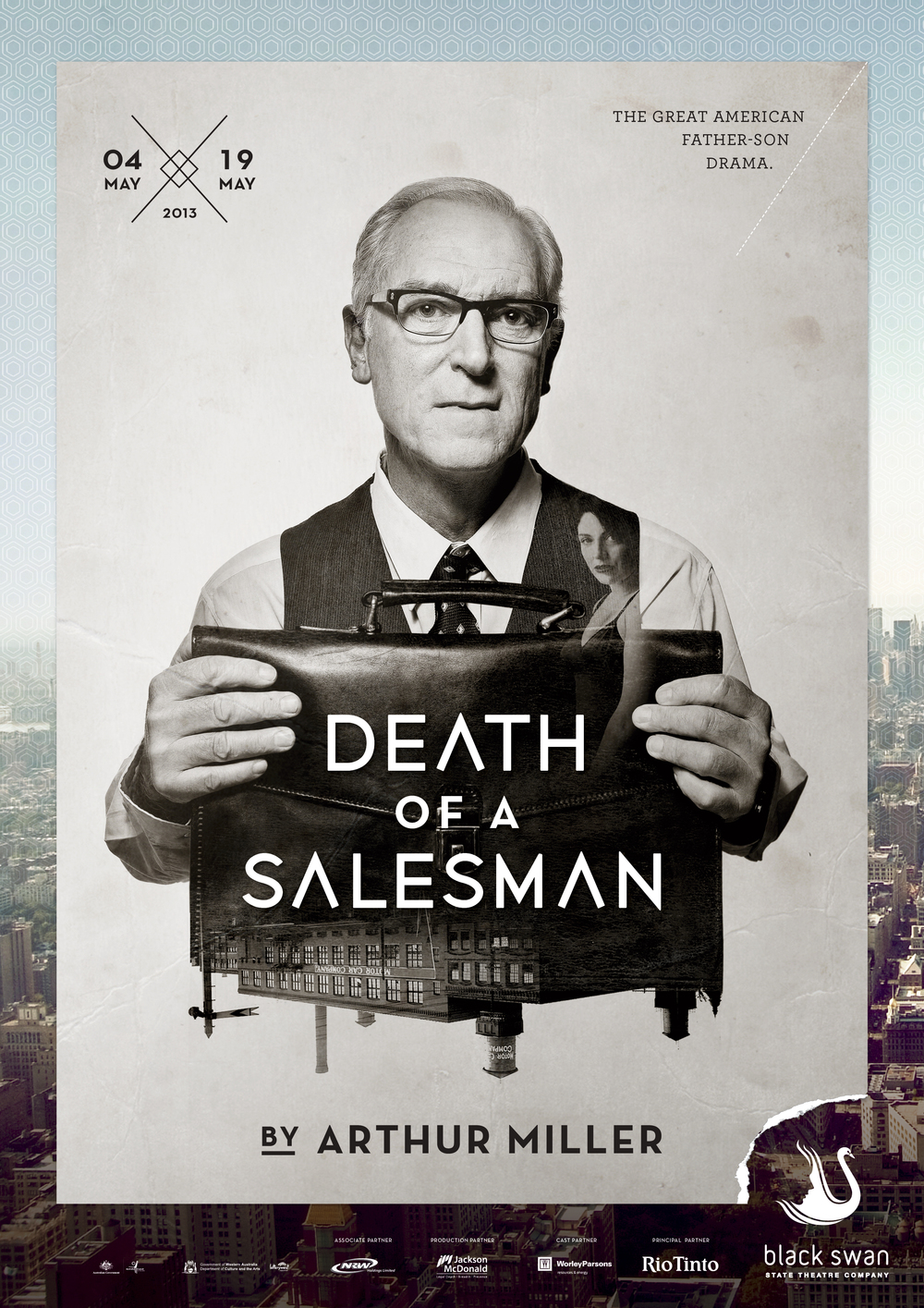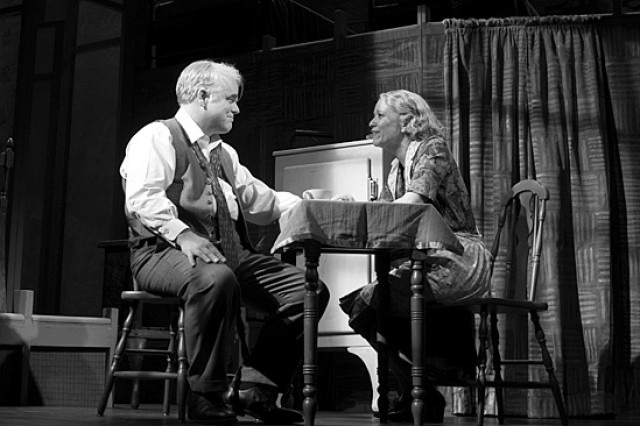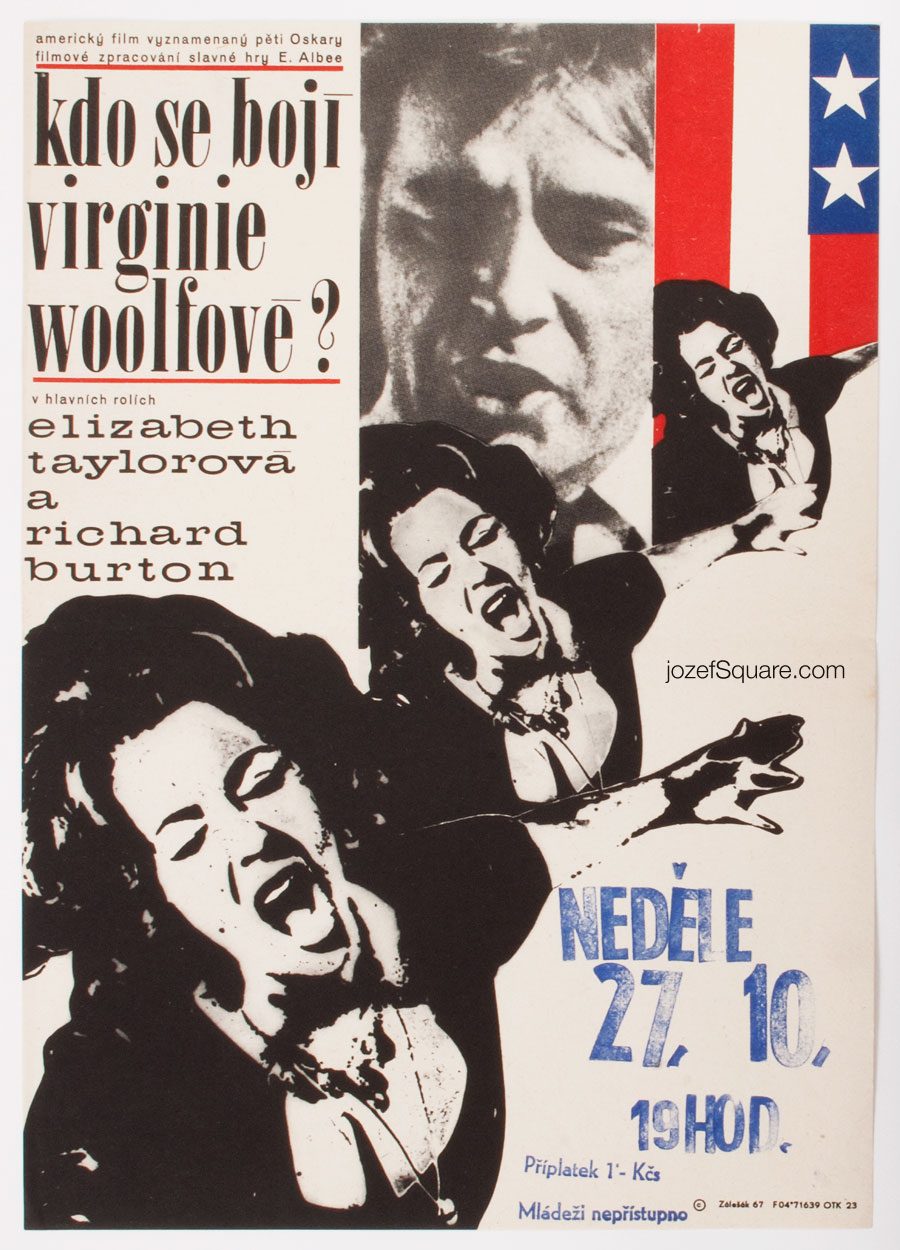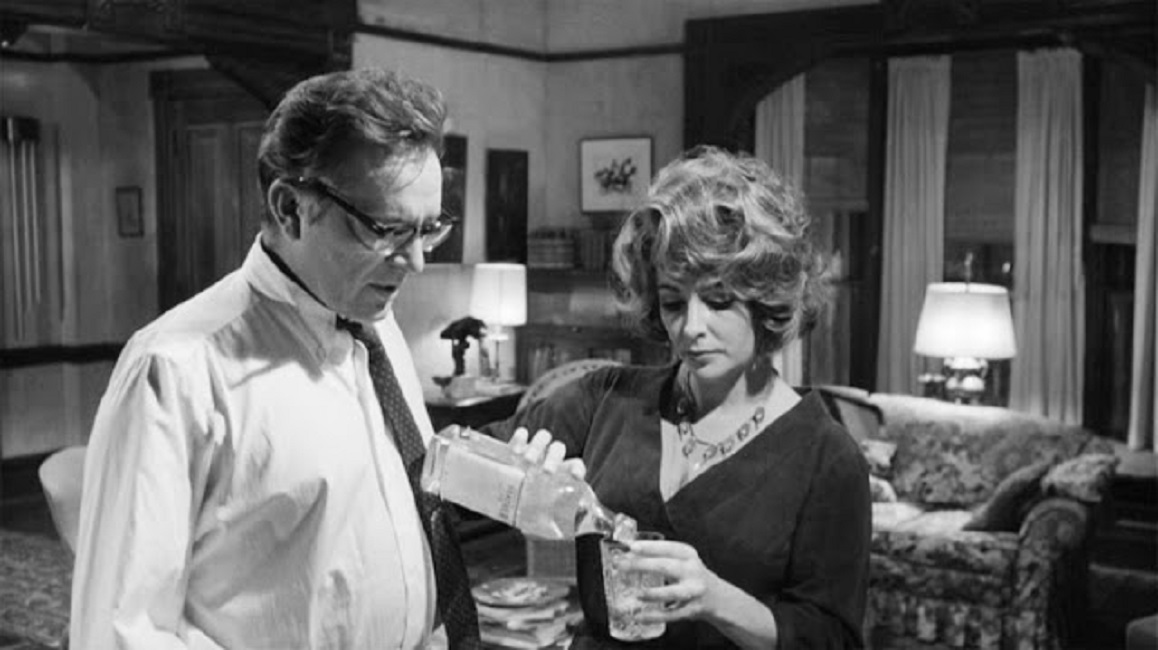Look Back in Anger is a kitchen sink drama play written by John Osborne and first performed in 1956. It is considered one of the most influential plays of the 20th century and is often cited as a prime example of the genre. The play explores themes of anger, class struggle, and disillusionment in post-war Britain. The story centers around Jimmy Porter, an intelligent but bitter young man who is frustrated with his working-class life and the society he lives in. His relationship with his upper-class wife Alison and their friend Cliff becomes strained as he constantly berates them and rants about the state of the world. As tensions rise, secrets are revealed and the characters are forced to confront their own insecurities and failures. Look Back in Anger was a groundbreaking play for its time, as it broke away from the traditional style of British theater and introduced a more realistic, gritty portrayal of working-class life. It also sparked controversy with its bold language and themes, but its success paved the way for future kitchen sink dramas.Look Back in Anger
A Taste of Honey is a kitchen sink drama play written by Shelagh Delaney and first performed in 1958. It tells the story of a teenage girl, Jo, and her relationship with her alcoholic mother Helen. The play deals with issues of poverty, race, and sexuality in 1950s England. Jo's life is turned upside down when her mother brings home a new man, Peter, and decides to marry him. Jo forms an unlikely bond with a black sailor named Jimmy, who offers her a glimpse of a different life. But as her mother's marriage falls apart and she becomes pregnant, Jo must face the harsh realities of her situation. A Taste of Honey was one of the first kitchen sink dramas to focus on the struggles of a young woman, and it received critical acclaim for its honest portrayal of working-class life. It has been adapted into a film and has been revived numerous times on stage.A Taste of Honey
The Entertainer is a kitchen sink drama play written by John Osborne and first performed in 1957. It is set against the backdrop of the Suez Crisis and follows the story of fading music hall performer Archie Rice and his dysfunctional family. As Archie's career and personal life crumble around him, he is forced to confront his own failures and the changing society he lives in. The play also delves into the strained relationships between Archie, his wife Phoebe, and their children as they all struggle to find their place in the world. The Entertainer is a powerful commentary on the decline of the British Empire and the changing attitudes of the working-class. It has been adapted into a film and has been revived numerous times on stage, solidifying its place as a classic kitchen sink drama.The Entertainer
Roots is a kitchen sink drama play written by Arnold Wesker and first performed in 1959. It is the first play in a trilogy that follows the lives of three siblings from a Jewish working-class family in London's East End. The play focuses on the struggles of Beatie Bryant, the youngest sibling, as she tries to break away from her family's traditional values and find her own identity. As she falls in love with a middle-class art student, tensions rise between her and her family as they try to hold on to their roots and beliefs. Roots is a powerful exploration of class, culture, and identity in post-war Britain. It was highly praised for its realistic portrayal of working-class life and has been revived numerous times on stage.Roots
Abigail's Party is a kitchen sink drama play written by Mike Leigh and first performed in 1977. Set in the 1970s, it follows the story of Beverly, a middle-class woman hosting a party for her neighbors. As the evening progresses and tensions rise, the true nature of the characters is revealed. The play explores themes of social class, marriage, and the search for happiness. It is often praised for its sharp dialogue and dark humor, and has been adapted into a popular television film. Abigail's Party remains a classic example of a modern kitchen sink drama.Abigail's Party
Death of a Salesman is a kitchen sink drama play written by Arthur Miller and first performed in 1949. It follows the story of Willy Loman, a traveling salesman who is struggling with the reality of his failed career and strained relationship with his sons. The play delves into themes of the American Dream, success, and the pressures of society. As Willy's mental state deteriorates, he becomes increasingly haunted by his past and the choices he has made. Death of a Salesman is a timeless classic that continues to resonate with audiences today.Death of a Salesman
Who's Afraid of Virginia Woolf? is a kitchen sink drama play written by Edward Albee and first performed in 1962. It follows the story of a middle-aged couple, George and Martha, and their younger guests, Nick and Honey, over the course of one evening. The play is known for its intense and emotional confrontations between the characters, as they delve into their insecurities, secrets, and desires. It is a powerful exploration of marriage, societal expectations, and the masks we wear in our relationships. Who's Afraid of Virginia Woolf? remains a classic and influential work in the kitchen sink drama genre.Who's Afraid of Virginia Woolf?
The Caretaker is a kitchen sink drama play written by Harold Pinter and first performed in 1960. It follows the story of two brothers, Aston and Mick, and the tramp Davies who comes to stay with them. As the brothers compete for Davies' loyalty, a power struggle ensues and the true nature of the characters is revealed. The play is known for its use of silence and pauses, as well as its exploration of themes such as identity, power, and manipulation. It has been adapted into a film and continues to be staged around the world, cementing its place as one of Pinter's most famous works.The Caretaker
Saved is a kitchen sink drama play written by Edward Bond and first performed in 1965. It deals with the lives of a group of working-class teenagers in South London and the violence and despair that surrounds them. The play was met with controversy and was even banned for its shocking content. Despite its controversial nature, Saved is considered a groundbreaking play for its realistic portrayal of inner-city life and its themes of social inequality and alienation. It has been revived numerous times and remains an important work in the kitchen sink drama genre.Saved
The Homecoming is a kitchen sink drama play written by Harold Pinter and first performed in 1965. It tells the story of a family living in a rundown house in North London and the return of their long-lost brother Teddy, who brings his wife Ruth with him. The play explores themes of power, gender roles, and family dynamics as the characters' relationships are put to the test. It is known for its cryptic dialogue and unsettling atmosphere, and has been adapted into a film and numerous stage productions. The Homecoming is a thought-provoking and influential work in the kitchen sink drama genre.The Homecoming
The Impact of Kitchen Sink Drama Plays on House Design

Exploring the Origins of Kitchen Sink Drama Plays
 One of the most influential and enduring forms of theatre, the kitchen sink drama play has significantly shaped our understanding of house design. This genre emerged in the late 1950s in Britain and was characterized by its focus on the lives of working-class individuals and their struggles in society. The term "kitchen sink" refers to the common household object and symbolizes the domestic, mundane, and often gritty realities portrayed in these plays.
One of the most influential and enduring forms of theatre, the kitchen sink drama play has significantly shaped our understanding of house design. This genre emerged in the late 1950s in Britain and was characterized by its focus on the lives of working-class individuals and their struggles in society. The term "kitchen sink" refers to the common household object and symbolizes the domestic, mundane, and often gritty realities portrayed in these plays.
How Kitchen Sink Drama Plays Reflect Realistic House Design
 What sets kitchen sink drama plays apart from other forms of theatre is their emphasis on realism. These plays depict the everyday lives of ordinary people and their homes, providing a raw and unfiltered view of house design. The characters in these plays often live in cramped, rundown houses that are a far cry from the grandiose and luxurious homes seen in traditional theatre. This portrayal of humble and realistic house design has had a lasting impact on our perceptions of domestic spaces.
Kitchen sink drama plays have challenged the traditional notions of house design by bringing attention to the often neglected and overlooked aspects of domestic life.
These plays have shed light on the struggles of working-class individuals and their living conditions, forcing us to confront the reality of our own homes. This has led to a shift in the way house design is approached, with a greater focus on functionality, practicality, and affordability.
What sets kitchen sink drama plays apart from other forms of theatre is their emphasis on realism. These plays depict the everyday lives of ordinary people and their homes, providing a raw and unfiltered view of house design. The characters in these plays often live in cramped, rundown houses that are a far cry from the grandiose and luxurious homes seen in traditional theatre. This portrayal of humble and realistic house design has had a lasting impact on our perceptions of domestic spaces.
Kitchen sink drama plays have challenged the traditional notions of house design by bringing attention to the often neglected and overlooked aspects of domestic life.
These plays have shed light on the struggles of working-class individuals and their living conditions, forcing us to confront the reality of our own homes. This has led to a shift in the way house design is approached, with a greater focus on functionality, practicality, and affordability.
The Influence of Kitchen Sink Drama Plays on Modern House Design
 The influence of kitchen sink drama plays on house design can still be seen today. In the 1950s and 1960s, these plays sparked important conversations about social issues such as poverty, class divide, and the impact of industrialization on domestic life. This, in turn, influenced the design of affordable, functional, and efficient homes for the working class.
In the present day, the legacy of kitchen sink drama plays can be seen in the trend towards minimalist and sustainable house design. These plays have highlighted the importance of creating homes that are not only aesthetically pleasing but also practical and environmentally friendly.
They have also encouraged a more inclusive approach to house design, with a greater focus on creating spaces that cater to the diverse needs and lifestyles of individuals.
In conclusion, kitchen sink drama plays have had a profound impact on the way we view and design our homes. They have challenged traditional notions of house design and brought attention to the often neglected aspects of domestic life. Their influence can still be seen in the modern approach to house design, making them a lasting and important contribution to the world of theatre and architecture.
The influence of kitchen sink drama plays on house design can still be seen today. In the 1950s and 1960s, these plays sparked important conversations about social issues such as poverty, class divide, and the impact of industrialization on domestic life. This, in turn, influenced the design of affordable, functional, and efficient homes for the working class.
In the present day, the legacy of kitchen sink drama plays can be seen in the trend towards minimalist and sustainable house design. These plays have highlighted the importance of creating homes that are not only aesthetically pleasing but also practical and environmentally friendly.
They have also encouraged a more inclusive approach to house design, with a greater focus on creating spaces that cater to the diverse needs and lifestyles of individuals.
In conclusion, kitchen sink drama plays have had a profound impact on the way we view and design our homes. They have challenged traditional notions of house design and brought attention to the often neglected aspects of domestic life. Their influence can still be seen in the modern approach to house design, making them a lasting and important contribution to the world of theatre and architecture.



